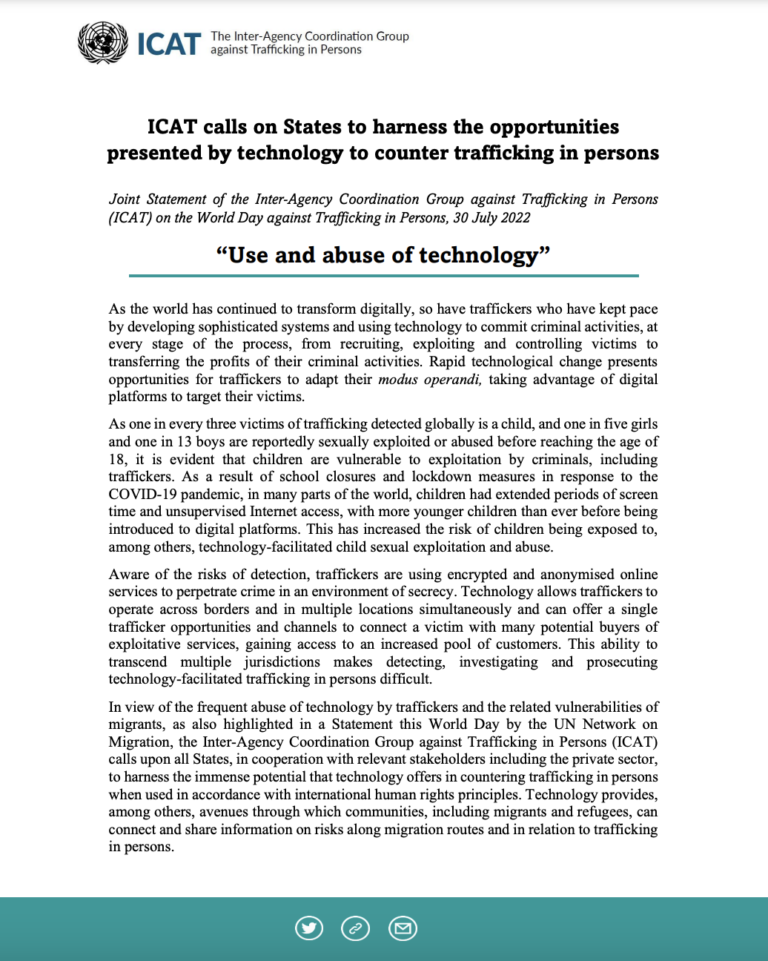As the world has continued to transform digitally, so have traffickers who have kept pace by developing sophisticated systems and using technology to commit criminal activities, at every stage of the process, from recruiting, exploiting and controlling victims to transferring the profits of their criminal activities. Rapid technological change presents opportunities for traffickers to adapt their modus operandi, taking advantage of digital platforms to target their victims.
As one in every three victims of trafficking detected globally is a child, and one in five girls and one in 13 boys are reportedly sexually exploited or abused before reaching the age of 18, it is evident that children are vulnerable to exploitation by criminals, including traffickers. As a result of school closures and lockdown measures in response to the COVID-19 pandemic, in many parts of the world, children had extended periods of screen time and unsupervised Internet access, with more younger children than ever before being introduced to digital platforms. This has increased the risk of children being exposed to, among others, technology-facilitated child sexual exploitation and abuse.
Aware of the risks of detection, traffickers are using encrypted and anonymised online services to perpetrate crime in an environment of secrecy. Technology allows traffickers to operate across borders and in multiple locations simultaneously and can offer a single trafficker opportunities and channels to connect a victim with many potential buyers of exploitative services, gaining access to an increased pool of customers. This ability to transcend multiple jurisdictions makes detecting, investigating and prosecuting technology-facilitated trafficking in persons difficult.

